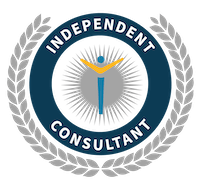 Your company is considering switching to a new CRM system or has already committed to a new CRM system. What is your implementation resource strategy — utilizing internal staff, contracting with third party consultants, or a combination of the two?
Your company is considering switching to a new CRM system or has already committed to a new CRM system. What is your implementation resource strategy — utilizing internal staff, contracting with third party consultants, or a combination of the two?
Even for companies that want to take on full, internal ownership of a CRM system, it can make sense to involve external consulting resources for the initial CRM implementation.
Here are ten reasons to consider involving third party resources for some or all of the first phase of a CRM implementation.
1. The Opportunity Cost of Internal Staff Time
Internal business analysts and developers will normally be less expensive than third party resources — based on a pure mathematical calculation of labor cost. However, it’s worth considering the opportunity cost of pulling an internal analyst or developer from another project or taking a resource away from working on your company’s own product.
If your company develops a software product, it’s worth asking whether there is more overall value in keeping your internal developer focused on enhancements and bug fixes to your company’s revenue-producing product rather than getting that person involved in CRM development.
2. Exposure to Best Practices
One of the factors that is built into the price of CRM consultants is their accumulated knowledge of an assortment of best practices. When hiring an outside consulting team, you’re not just hiring people who are technically certified in your chosen CRM system. You’re hiring a team of people who have encountered a wide variety of real world business situations over the course of many years and who have seen first hand which strategies and technical approaches work best, and which ones do not work as well.
3. Optimized System Design
Today’s CRM applications all have powerful, point and click tools for adding tables and fields and for creating relationships between tables. But, if this power gets into untrained or inexperienced hands then the design of the CRM can quickly head down the wrong path. The result can be long term inefficiencies in terms of user interaction, the ability to generate meaningful reports, and more.
4. Knowledge of Subtleties
Just as In-N-Out® burger had a secret menu (which they now call “not so secret”), some CRM vendors have unpublicized, free functionality that can be made available on request. Outside consultants will likely have knowledge about some of these hidden gems.
In addition, today’s CRM systems have such deep functionality that it’s sometimes even hard to discover the well-publicized functionality. An outside consultant can help to discern which areas of functionality should receive the most focus.
5. Pre-Developed Code
For advanced functionality and integrations, third party consultants often have pre-developed code libraries that can accelerate the pace of CRM development. If an internal developer is new to the chosen CRM system’s development environment, he or she will need to either have to develop every line of code from scratch, or spend time researching time saving techniques and/or public code samples.
6. Pre-Developed Data Migration Maps and Scripts
If data needs to be migrated from a legacy contact manager or CRM system, a third party consulting group may already have had experience migrating data from the same legacy application that your company has been using. While data migration can often be complex, even when experience with a legacy application comes into play, there can still be significant time saving and a better outcome from leveraging an outside consulting team’s prior experience.
7. Leveraging Past Solutions to Similar Issues
While third party consultants will need to spend time learning about your company’s specific business model, an experienced consultant will likely have encountered some similar business issues to those of your company during previous consulting engagements. The consultant can then suggest proven approaches to solving those business issues within a CRM solution.
8. Pushback When Warranted
Since an outside consultant does not necessarily have to be as politically appropriate as an employee, the consultant may be able to push back harder on management than an internal resource when a requested course of action does not seem to be an advisable direction or have the correct level of priority.
9. Third Party Product Recommendations
An outside CRM consultant can recommend which third party add-ons to evaluate for functionality, such as partner portal, email marketing, marketing automation or legacy system integration. This can save a considerable amount of internal research time.
10. Training
A third party can often provide more effective end user training than an internal resource who is relatively new to the CRM solution, even if that person is an experience software trainer. User training has its own set of best practices that can help with end user CRM adoption.


